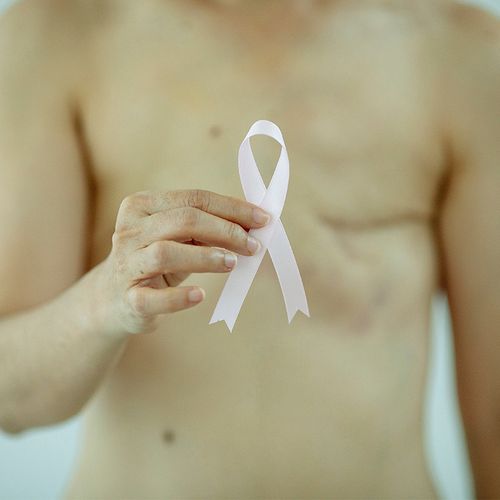Two new studies may help breast cancer patients and their doctors make treatment decisions involving immediate breast reconstruction after mastectomy.
One study finds that about half of women who need radiation therapy after having had a mastectomy with immediate reconstruction develop complications that require additional surgery. Another study finds that chemotherapy does not affect complication rates after mastectomy and immediate reconstruction.
Both reports were published in the Archives of Surgery.
Background
The growing trend toward immediate reconstruction "has turned into a runaway train," said researcher Rodney Pommier, MD, professor of surgery at Knight Cancer Institute, Oregon Health & Science University in Portland. Some women, he said, would be better off delaying it.
Radiation Study
Dr. Pommier and his colleagues evaluated 302 women who had mastectomies-of these, 152 had reconstruction, including 131 immediately, and 100 had radiation after the mastectomy.
Among those 100 who needed radiation, complications occurred in 44% of those who had immediate reconstruction, but only in 7% of those who did not have immediate reconstruction.
Both scenarios—having radiation after mastectomy and having reconstruction done immediately-strongly predicted the risk of complications, Dr. Pommier's team found. Radiation tripled the risk, and immediate reconstruction increased the risk eightfold.
Implants had to be removed in 31% of patients who had radiation after mastectomy, compared with just 6% of those who did not have to have radiation, the researchers reported.
"We were surprised that one in three lost implants," he said. His team was also surprised at the complication rates overall. "I think it was known that complication rates (among those who need radiation) are fairly high, but I don't think they have been quantified," he noted.
Recommendations
The results, Dr. Pommier said, have changed his thinking. He now suggests that having a biopsy of the sentinel lymph node (the first to receive drainage from a tumor) before deciding whether to have immediate reconstruction would be wise. "If the sentinel node is negative, there is a low probability they would get radiation," he explained.
This biopsy is typically done at the start of the mastectomy, he said. But it can be done as a 30-minute outpatient procedure before the mastectomy is scheduled and before the reconstruction decision is made. In determining who will need radiation after mastectomy, doctors consider biopsy results as well as other factors, such as tumor size.
Chemotherapy Study
In the second study, researchers from the University of California, San Francisco, found that chemotherapy, either before or after the mastectomy and immediate reconstruction, had no bearing on complications and the need for more procedures.
Overall, 31% of 163 patients studied (some of whom received chemo, and some who did not) had a complication that required a return trip to the operating room. But the rate didn't differ based on whether the woman received chemo before surgery, after, or not at all.
The two new studies are putting some numbers behind what doctors have observed in patients, said Joanne Mortimer, MD, director of the women's cancer program at City of Hope Comprehensive Cancer Center in Duarte, California, who reviewed the findings.
"I think they actually put in writing what physicians have appreciated clinically," she said.
While immediate reconstruction can help a woman cope psychologically, Dr. Mortimer said, sometimes it is not best in the long run if a woman needs radiation.
Keep Your Hair During Chemo
Breast cancer patients are more likely to keep their hair when scalp-cooling caps are worn during chemo sessions. The Penguin Cold Cap contains a frozen gel that cools the scalp, reducing blood flow to the area and minimizing chemo's effect on the scalp. The cap requires changing every 20 minutes (more convenient models are under development).
Information: http://penguincoldcaps.co.nz.
New Way to Reduce Breast Cancer Recurrence
In a recent study, mid-stage breast cancer patients attended a "psychological intervention program" consisting of 26 counseling sessions in one year. They learned ways to reduce stress, increase social support, improve diet and exercise, and comply with cancer treatment.
Encouraging results: Compared with a control group that did not attend the program, study participants were 45% less likely to have a cancer recurrence and 56% less likely to die from breast cancer during the seven- to 13-year follow-up.
If you have cancer: Your doctor or a mental health professional can refer you to a psychological intervention program in your area.
